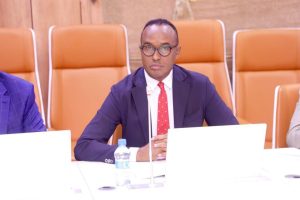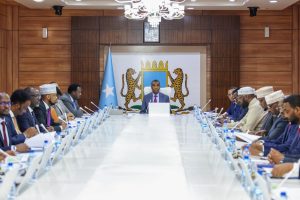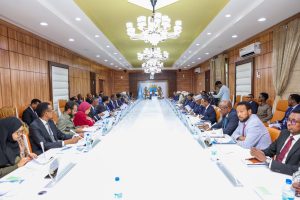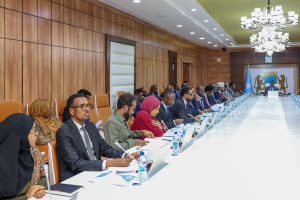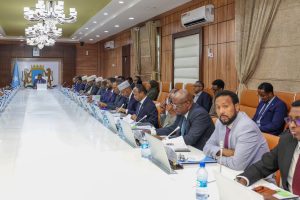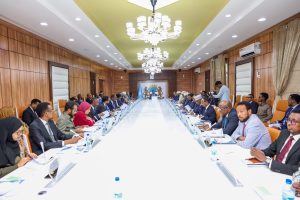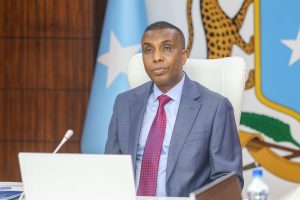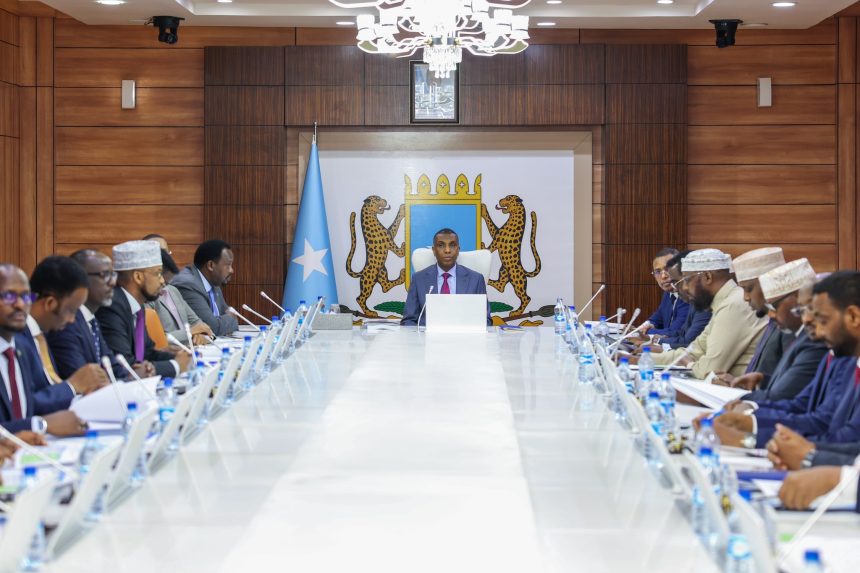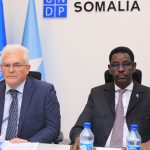MOGADISHU, Somalia – The Council of Ministers of the Federal Government of Somalia, chaired by Prime Minister Hamza Abdi Barre, convened for its weekly session today in Mogadishu, passing a series of pivotal laws and agreements aimed at social reform, infrastructure development, and international cooperation.
In a historic move for the protection of human rights, the Cabinet unanimously approved the Bill on the Prohibition of Female Genital Mutilation (FGM). This legislative milestone is designed to safeguard the rights of women and girls across the nation and criminalize the practice, marking a significant victory for health and human rights advocates. Complementing this, the Council also passed the National Strategy for Women, Peace, and Security, reinforcing the “DanQaran” government’s commitment to increasing women’s participation in national development and stability.
Broadening Somalia’s international and economic horizons, the Ministers approved three other key items:
-
A Memorandum of Understanding (MoU) with Rwanda: Strengthening general cooperation and diplomatic ties between the Federal Government of Somalia and the Government of Rwanda.
-
The National Ports Strategy: A framework aimed at modernizing and regulating the country’s critical maritime infrastructure to boost trade and revenue.
-
The International Mobile Satellite Organization (IMSO) Convention: Ratifying this convention to allow Somalia to join the global community in utilizing satellite services and research, enhancing the nation’s telecommunications and maritime safety capabilities.
While the meeting celebrated legislative progress, it also addressed the pressing humanitarian challenges facing the country. The Commissioner of the Somali Disaster Management Agency (SoDMA), Mr. Mahamuud Moallim Abdulle, presented a comprehensive report on the current drought situation.
The Commissioner revealed that approximately 4.4 million people are currently in need of humanitarian assistance due to the worsening conditions. He outlined the ongoing relief efforts and the agency’s strategic response plan.
Responding to these figures, Prime Minister Hamza Abdi Barre issued a strict directive to all relevant government agencies to expedite emergency response efforts. He ordered immediate action to ensure that aid reaches the Somali citizens most severely affected by the drought, emphasizing that saving lives remains the government’s top priority.
The Council also received reports regarding the country’s general security situation and the outcomes of the recent Somali Judiciary Conference.
